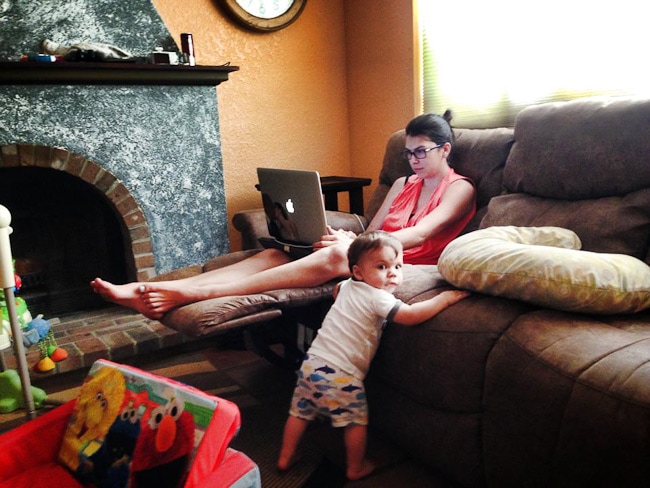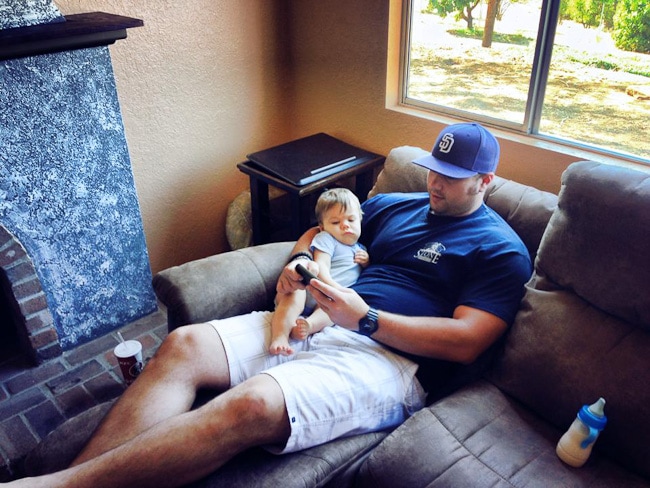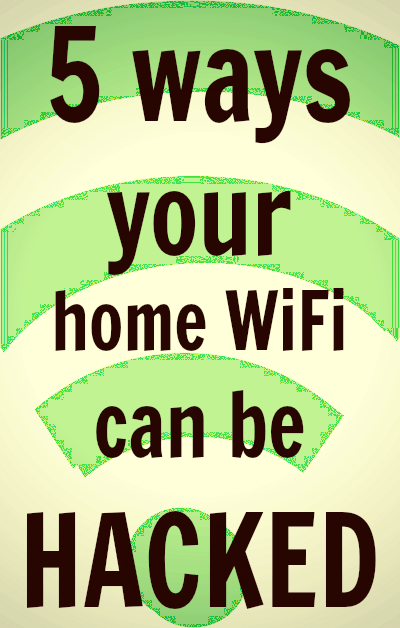
This is what I call my “home WiFi nook.” I do so much work on-the-go, but it's right here in this cozy spot that I truly get things accomplished. I parent, I write, I share family photos and aggregate content. I watch TV and talk to Nate. This is my area. My safe place.

I have numerous pictures of friends in this corner, helping me out with the kids while simultaneously living their own digital lives. Facebooking and tweeting thanks to the handy home WiFi network of the Day family. What is it about this spot that makes us feel so secure?
Truth be told, home WiFi is actually severely under-protected. Several years back I was the victim of identity theft over a WiFi network that was thought to be risk-free. I made a couple purchases online with my credit card and BAM! Secured network? Tell that to the guy who tried to buy several thousands of dollars worth of electronics equipment in my name.
You home WiFi is probably vulnerable, too. Here's why.
- Many routers, in spite of having multiple security options, are set by default to WEP protection. This method of security sends out patterns through your network that make it easy as pie for anyone to snatch your WiFi password literally out of thin air.
- You can set your router to only recognize certain devices (this is called whitelisting or MAC address filtering), but savvy neighbors can detect and mirror that network address with an application called Wireshark.
- Your password is too easy. Even with the most advanced connectivity options, free “brute hacking” software can guess your password in a matter of hours by running thousands of varying number and dictionary combinations against the computer database until it guesses the right code. And if you used the default WiFi password that was on your router when you bought it? Yeah…those are totally published on Google.
- People are gullible. All it takes is one visitor in your home to click a suspicious link and they've opened a virtual back door to your home WiFi.
- You're forgetful. Ever sell an old phone on eBay or ditch an outdated router at a garage sale? If you didn't do a hard wipe of all the system's data, you've exposed your family's personal information to random people on the street.
So what's to be done? Obviously, using a secure password is key, but additional layers of protection will help guard you in case your network does become compromised. Use a free VPN service like Hotspot Shield to secure your data over WiFi connections. This will prevent hackers from accessing personal information like credit cards, birth dates and other data entered into your web browser.
